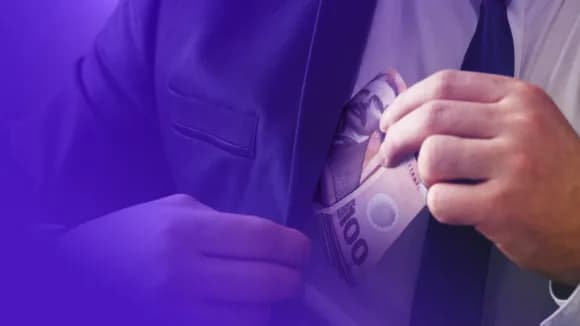
Developers
The developers Opes recommends (and the ones we don't)
Who are all the developers you work with? Well, we counted them. In total there are 123 developers that we have had a relationship with over the last 3 years.
Developers
6 min read

Author: Andrew Nicol
Managing Director, 20+ Years' Experience Investing In Property, Author & Host
Reviewed by: Andrew Nicol
Managing Director, 20+ Years' Experience Investing In Property, Author & Host
Developers will sometimes offer massive “discounts” on their properties. These are known as cashbacks.
And in some cases they are dodgy (and potentially even illegal). Here at Opes Partners, we’ve always been cautious about cashbacks.
We’ve said, “If you get a cashback from the developer, there’s the potential for it to be a bit dodgy.” – Andrew Nicol, Opes Partners Managing Director.
But sometimes, we will recommend a property to an investor with a cashback.
So you might wonder: “Hold on ... how come you say cashbacks are dodgy, then do them yourself?”
That is such a good question. Here at Opes Partners, we never shy away from a straight question.
So, in this article, you’ll learn how to spot a grubby cashback from a legitimate one.
That includes the 3 tests you can use to see if you’re getting a good deal (or if a developer is pulling the wool over your eyes).
A cashback is when the developer agrees to give you money when you buy a property from them.
For instance, let’s say you agree to buy a $600k property from a developer. They say they’ll give you a $10k cashback as part of the negotiation.
When you come to pay for the property, you only have to pay $590k, and your settlement statement will show a $10k discount.
Essentially, it’s a discount ... but by a different name.
Why do they do this?
There are two main reasons: it’s a way of showing a discount on the properties, so developers use them to negotiate.
If you get a $20k cashback, you might feel like you’ve found an excellent deal.
The second reason is that the sale price on the contract remains at the higher amount.
That helps a developer say their properties sold for a higher price.
The good thing about a cashback is it can be a discount and this can result in instant equity.
But there is a risk. Developers sometimes err into hydraulicing, which is grubby and against the bank’s rules. More on this below.
There are 3 tests you can do to see if you are getting a legitimate deal on a property.
Not all cashbacks are a genuine discount.
I once worked with Jane. She went to a developer to buy a property.
The developer told Jane he’d give her a $50,000 cashback on any property she wanted.
That sounded great. So, she signed up to buy a property that was $800k.
So Jane thought she was getting a property worth $800k, but she only had to pay $750k.
But actually, the property wasn’t worth $800k at all; it was closer to $720k.
So Jane thought she was getting a discount, but it wasn’t a genuine discount. The property was never worth $800k in the first place. It was just a psychological sales tactic.
So how could Jane spot that the cashback was dodgy?
First, the developer said the cashback could be for any property. If a developer offers cashbacks on every property, it’s not a genuine incentive.
Firstly, the discount was too good to be true.
Most genuine cashbacks are around $10k-$20k.
If a developer offers a larger cashback (say $30k-$50k), it’s less likely to be genuine.
I’m continuing with Jane’s example. She thought she was getting a property worth $800k and paying $50k less for it … a great deal!
But the property wasn’t worth $800k at all.
This is sometimes called hydraulicing, and it muddies the water of actual value. It’s been a real issue in the past.
This is why you should always get a valuation to support a cashback.
For example, if Jane gets the property valued and it says the property is worth $800k, then that’s great. She has bagged herself a bargain.
But if the valuation comes in lower, you know the cashback wasn’t that good of a discount from the start. So make sure to get a valuation so you know the discount is genuine.
Otherwise the property developer might just be “marking up to mark down.” That’s where they put up their prices and then discount them, so you think you’re getting a good deal, but you’re not.
If the cashback is not in your sale and purchase agreement (contract) – it’s probably dodgy.
The developer might put the cashback in a different contract (a side agreement). They do this to keep the bank in the dark.
If the developer doesn’t want the bank to know, that’s probably because the situation isn’t squeaky clean.
A developer might want the bank out of the loop because banks will ask questions about the cashback.
For instance, let’s say it was a $600k property with a $10k cashback.
Sometimes, the bank only gives you a mortgage as if the price was $590k.
But if you’ve got a good mortgage broker, you may be able to get them to lend to you as if the property is worth $600k. Your mortgage adviser might say you’ll use the money to fund the cashflow of your new property.
They’ll also provide the valuation to show the house’s value is $600k.
Most investors (and developers) don’t realise that the IRD might view your cashback as income.
That means you may need to pay tax.
For example, let’s say you get a $10k cashback on a property you’re buying through a trust.
In some cases, you’ll need to pay $3,900 to the IRD.
You don’t always have to pay taxes; it depends on the wording of the contract. So, talk to your accountant about the potential tax implications of a cashback.
Marc, of Opes Accounting, says there is no general rule of thumb in this area. He says: “Your cashback may be taxable. It may not.” It depends on the specifics of the situation.
Only some developers’ cashbacks or incentives are dodgy.
So, if you follow these 3 tests you can figure out if the cashback is legitimate.
Or you might realise that the developer is using a psychological trick ... they’re trying to make you think you’re getting a good deal when you’re not.
There are 2 other things you can do to be extra cautious:
1) Use a property investment company.
These businesses specialise in finding New Builds for investors, so you know their information is more credible.
(Yes, Opes Partners is one of these companies, but there are others too. They are just a Google search away).
or
2) Read the developer’s information in detail yourself to make sure you fully understand what you’re getting into.
Managing Director, 20+ Years' Experience Investing In Property, Author & Host
Andrew Nicol, Managing Director at Opes Partners, is a seasoned financial adviser and property investment expert with 20+ years of experience. With 40 investment properties, he hosts the Property Academy Podcast, co-authored 'Wealth Plan' with Ed Mcknight, and has helped 1,894 Kiwis achieve financial security through property investment.
This article is for your general information. It’s not financial advice. See here for details about our Financial Advice Provider Disclosure. So Opes isn’t telling you what to do with your own money.
We’ve made every effort to make sure the information is accurate. But we occasionally get the odd fact wrong. Make sure you do your own research or talk to a financial adviser before making any investment decisions.
You might like to use us or another financial adviser